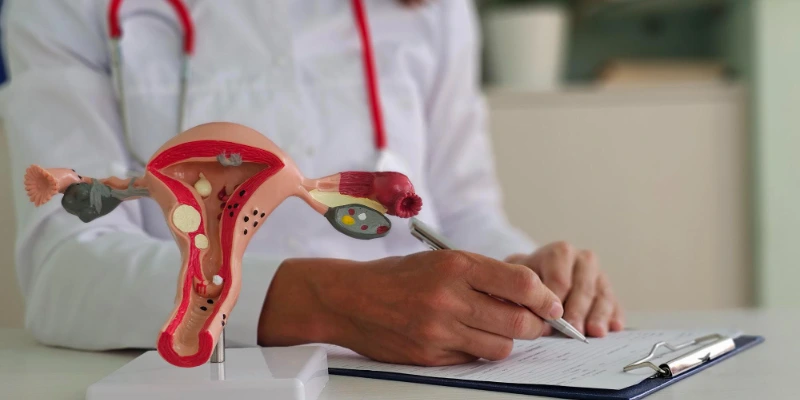Common Gynecological Problems: Causes, Symptoms, Treatment, And Prevention Options
Reproductive health is related to their overall health, even so, many issues in this field are unnoticed or misinterpreted. Problems like unusual bleeding, pain in that region, or abnormal discharge may force you to put daily activities aside and indicate some important health concerns. A prompt and proper diagnosis and treatment of reproductive health problems are important for a woman’s overall wellbeing.
Dr. Archana Agarwal in Bangalore is going to help us understand the common women’s health issues, their reasons, how to recognize the symptoms, available treatments, and ways to prevent them.
1. Irregular Menstrual Cycles
There are numerous causes, like hormonal problems, PCOS, thyroid issues, stress, substantial weight fluctuation, and so forth.
Symptoms:
- When periods are absent or happen less often than they should
- Stream that is either very fast or sluggish
- Sometimes women may see blood between two menstrual cycles.
Treatment:
Therapies such as birth control pills, medicine for thyroid problems, and amendments to your way of living.
Prevention:
Keep your weight healthy, manage things that make you stressed, and eat a proper diet.
Suggest to Read :- Pregnancy Care Essentials Explained By Dr. Archana Agarwal
2. Polycystic Ovary Syndrome (PCOS)
Reason: Imbalance of hormones results in having excess androgens and becoming insulin resistant.
Symptoms:
- Not having regular periods or having no periods
- Having more hair in places than usual
- Some of the health issues are acne, gaining weight, and problems with fertility.
Treatment:
Changes to one’s diet, increased exercise, and taking hormonal medicines or drugs that help with insulin are some examples.
Prevention:
Strategies introduced early in life lower the chances of developing PCOS problems and help relieve issues from the condition.
3. Vaginal Infections (Yeast, Bacterial Vaginosis, STIs)
Cause: Fungal or bacterial overgrowth, poor hygiene, unprotected sex, antibiotic overuse.
Symptoms:
- Abnormal discharge (color, smell, consistency)
- Itching, burning, discomfort
- Pain during urination or intercourse
Treatment:
Antibiotics or antifungal medications, depending on the infection type.
Prevention:
Good genital hygiene, avoiding scented products, using protection during intercourse, and wearing breathable underwear.
4. Uterine Fibroids
Cause: Genetic factors, hormonal fluctuations (particularly estrogen dominance).
Symptoms:
- Heavy or prolonged periods
- Pelvic pain or pressure
- Frequent urination or constipation
Treatment:
Medication to shrink fibroids, minimally invasive procedures (e.g., Uterine Artery Embolization), or surgical options like myomectomy.
Prevention:
Though not fully preventable, maintaining hormonal balance and managing weight may reduce the risk.
5. Endometriosis
Cause: Tissue similar to the uterine lining grows outside the uterus, causing inflammation.
Symptoms:
- Severe menstrual cramps
- Pain during sex
- Infertility and chronic pelvic pain
Treatment:
Pain relief medications, hormonal therapy, laparoscopy to remove lesions.
Prevention:
No known prevention, but early diagnosis can minimize long-term damage.
6. Cervical Dysplasia and Cancer
HPV infection over a long period, regular smoking, and having a weak immune system are linked to this kind of cancer.
Symptoms:
- You may not show any symptoms at the earliest stage of the disease.
- Results of a Pap smear test that are not normal
- When you have bleeding between periods or after having sexual intercourse
Treatment:
Laser treatments, applying cold packs, surgical removal of cells, having the HPV vaccination.
Prevention:
Taking a Pap smear test regularly, HPV immunization, practicing sexual safety, and quitting smoking.
When to See a Gynaecologist
You should never ignore signs like:
- Persistent pelvic pain
- Abnormal bleeding
- Painful intercourse
- Missed periods or unusual discharge
Early diagnosis can prevent complications and improve quality of life. Dr. Archana Agarwal, a leading gynaecologist in Bangalore, offers compassionate care with personalized solutions for every reproductive health concern.
Conclusion
Gynecological problems are more common than you think, but with the right awareness, treatment, and lifestyle choices, they’re entirely manageable. The key is not to ignore the warning signs. From PCOS to infections, early intervention can prevent long-term issues like infertility, chronic pain, or even cancer.
Prioritize your reproductive health—schedule your consultation with Dr. Archana Agarwal today and take proactive control over your wellness journey.

